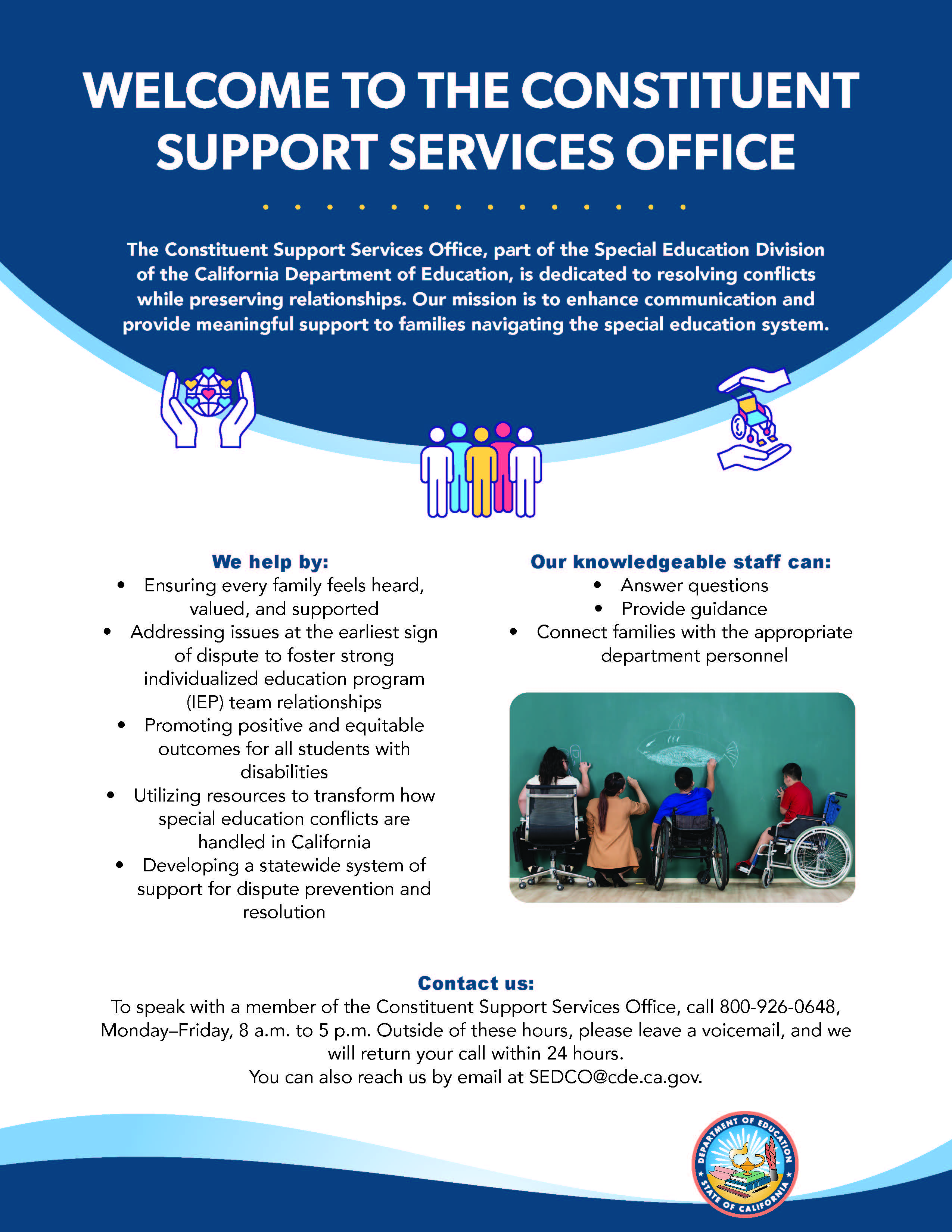IF UNABLE TO COME TO CONSENSUS
CONSTITUENT SUPPORT SERVICES UNIT:
The Constituent Support Services Office, part of the Special Education Division of the California Department of Education, is dedicated to resolving conflicts while preserving relationships. Our mission is to enhance communication and provide meaningful support to families navigating the special education system.
Learn more about how CDE is dedicated to enhancing communication and support for families.
(Flyer not available in Spanish at this time.)

PATHWAYS TO PARTNERSHIP:
The purpose of the Pathways to Partnership project, (a project funded by the California Collaborative for Educational Excellence,) is to develop common understandings of dispute prevention and resolution; building specific skill sets around resolution, mediation, facilitated IEPs; developing supportive communities of practice and establishing collaborative cultures that foster mutual trust between families and educational staff; and designing the future continuum of dispute prevention and resolution across California.
Learn more about Pathways to Partnership and how they may be able to assist with dispute prevention and resolution.

COMPLAINTS:
If you feel your rights or the rights of your child have been violated by the district or an employee of the district, you have a right to file a complaint. A complaint may be filed with the school district Complaint Resolution department. If not resolved, or if the parent chooses not to file the complaint with the district, a complaint can be filed directly with the California Department of Education using the form below.
Request for Complaint Investigation
DUE PROCESS:
On ocassion, members of the IEP team may not be able to come to agreement as to what is best for your child, even after trying to come to agreement throught the ADR process. Special education law provides specific steps for resolving those conflicts. If you continue to disagree, you may file for Due Process. Due Process is a system in which people from the State Department of Education step in to assist with resolving the conflict. Please visit the Office of Administrative Hearings website for access to the Due Process Guide or to download the Mediation or Due Process forms.
RESOLUTION SESSION:
If you file for Due Process, your school district will offer a Resolution Session. A good-faith effort will be made to come to agreement with you at the district level before the state steps in. Resolution Sessions are completely optional, and you will choose whether or not you wish to participate.
Opens in new window
PDF Download
Word Download
Excel Download
PowerPoint Download
Document Download